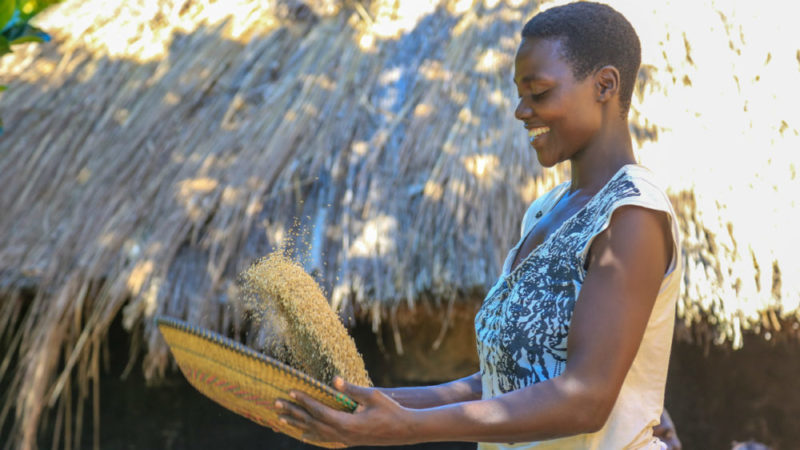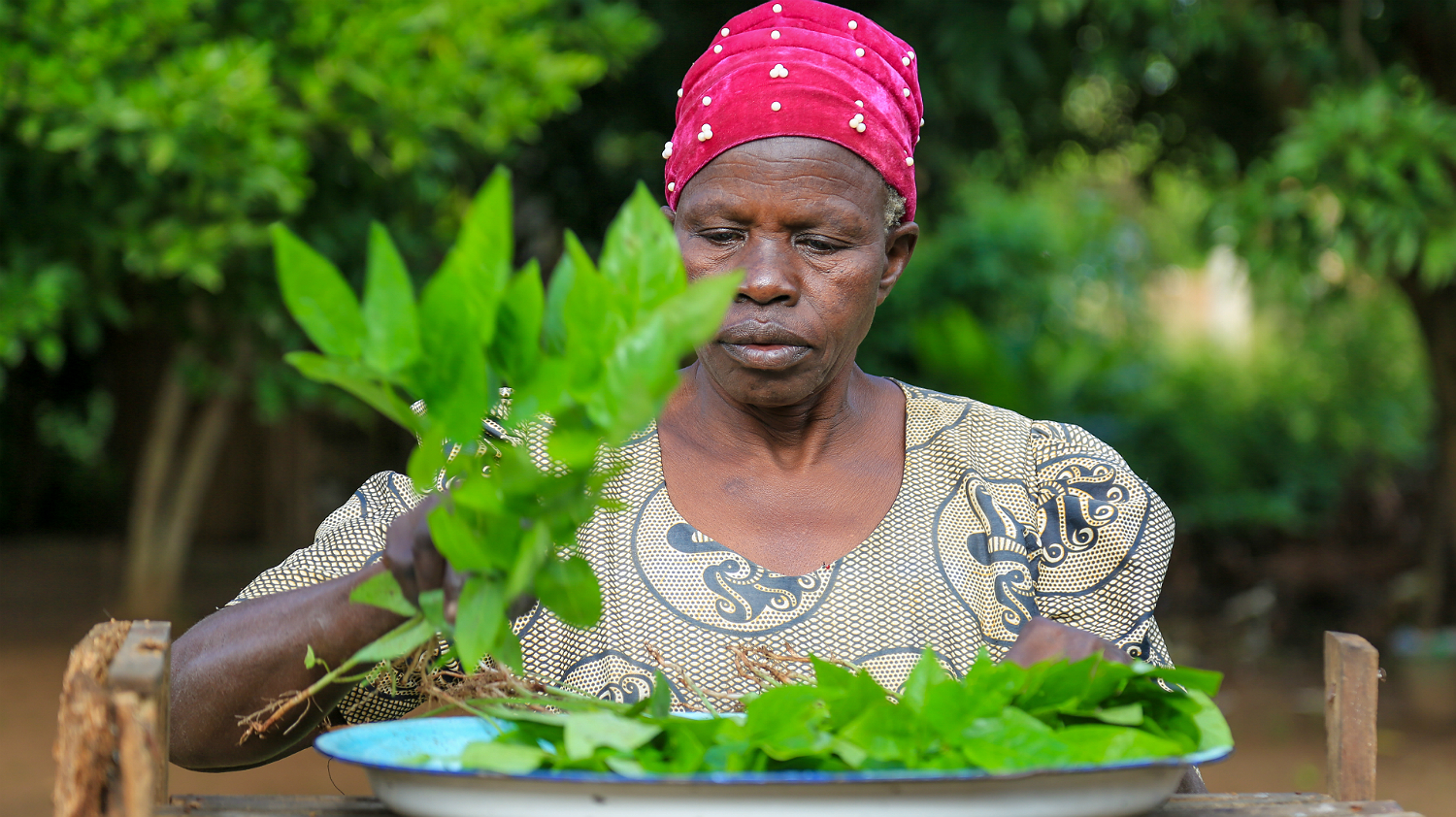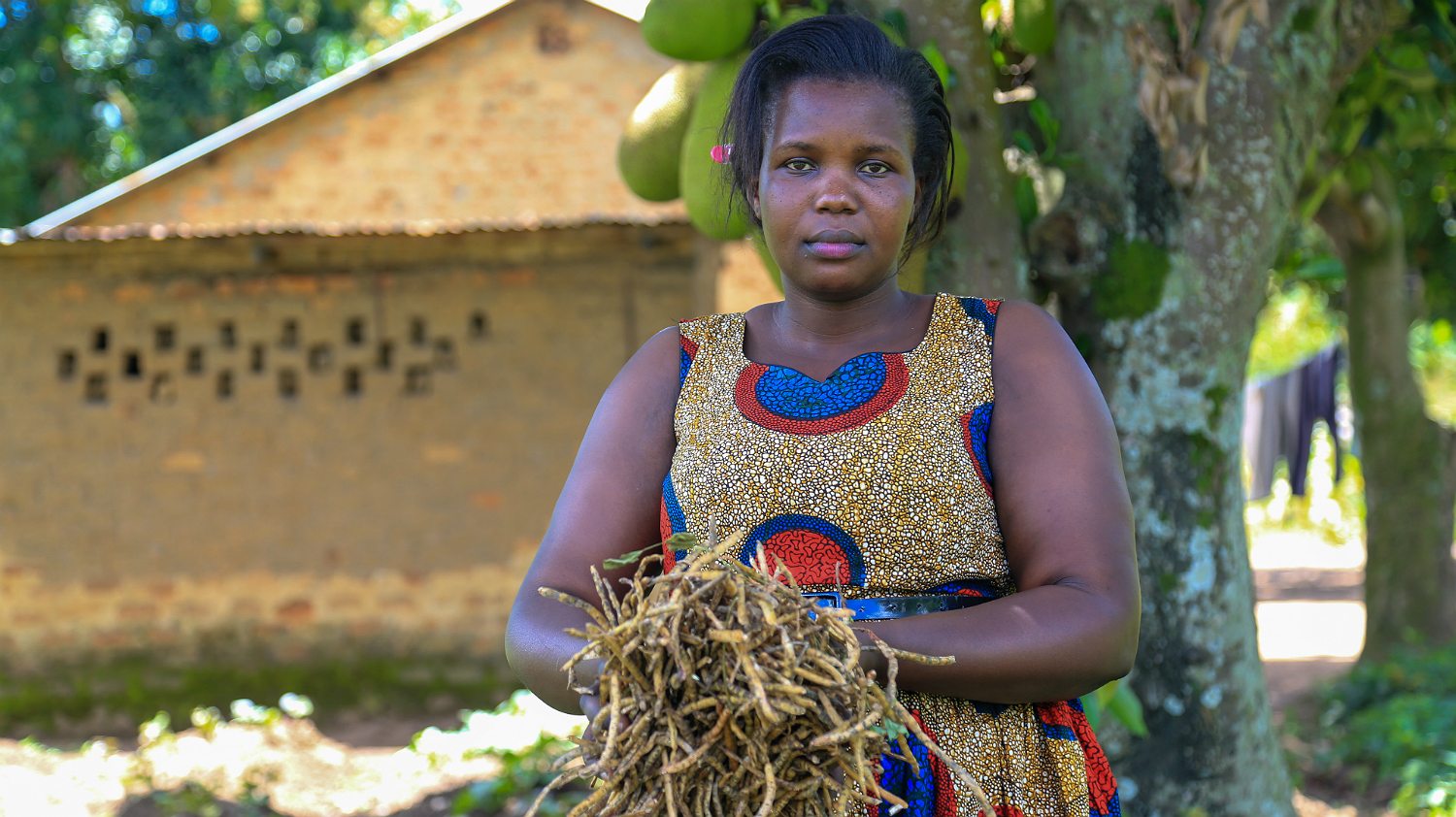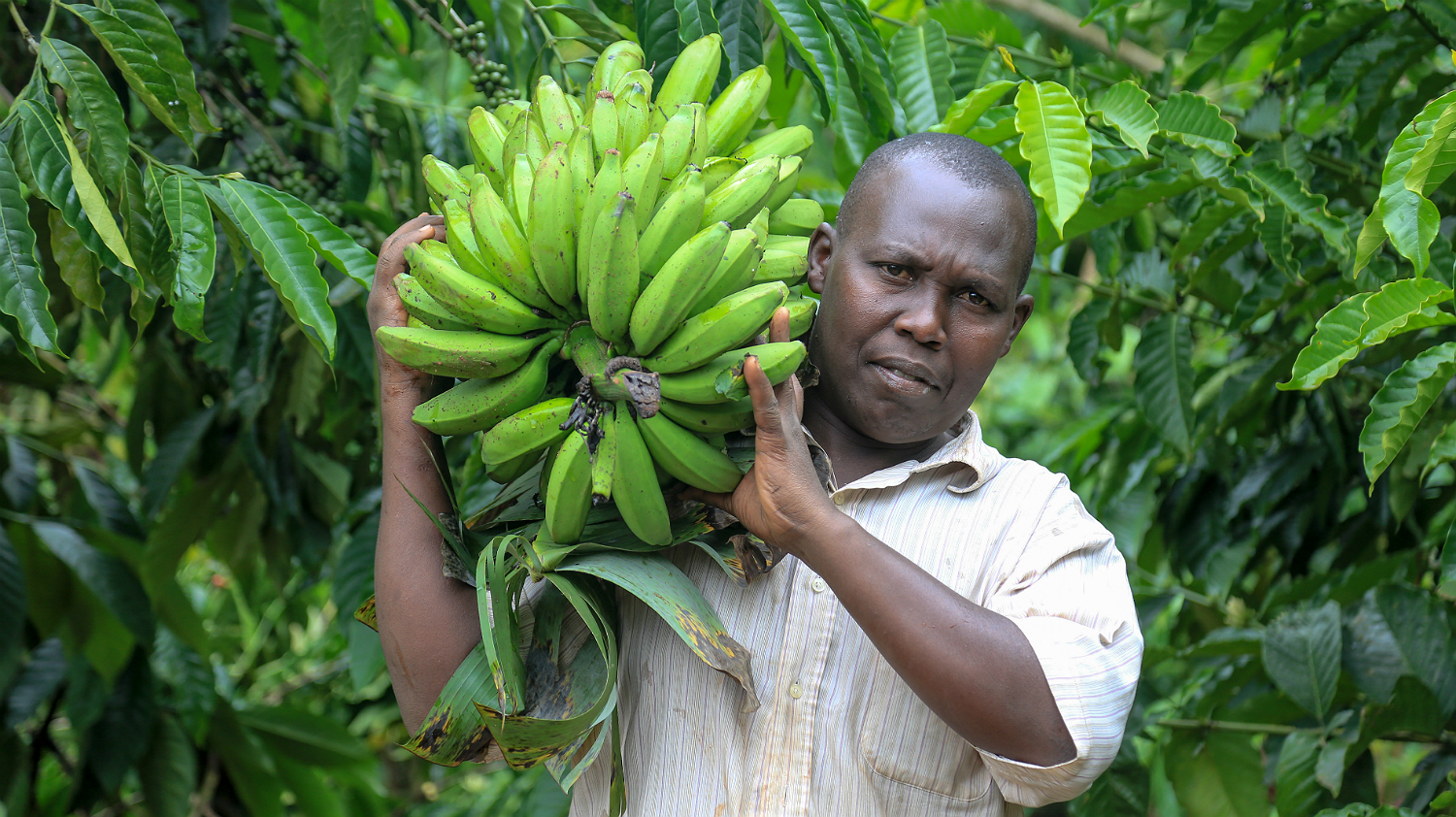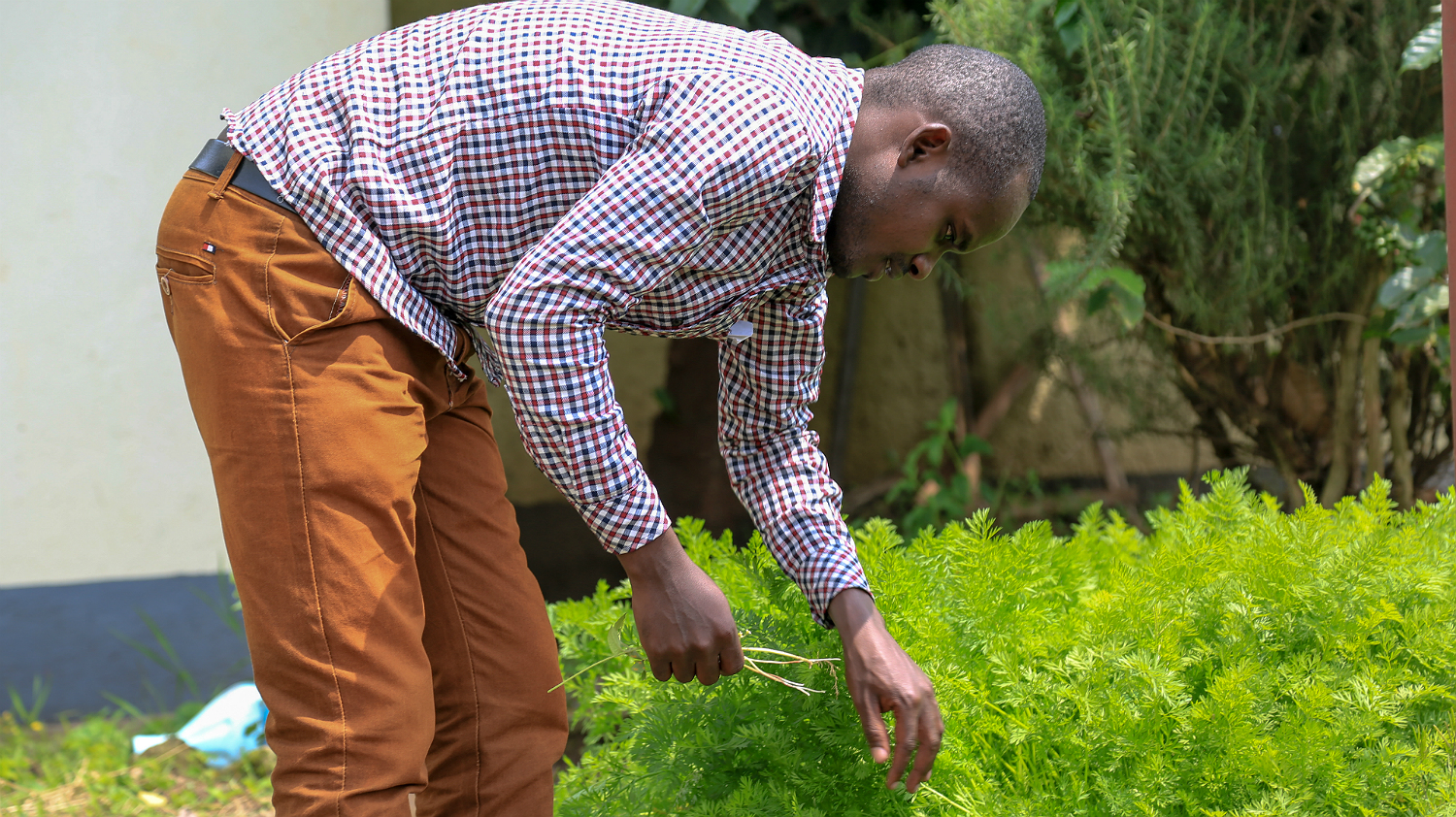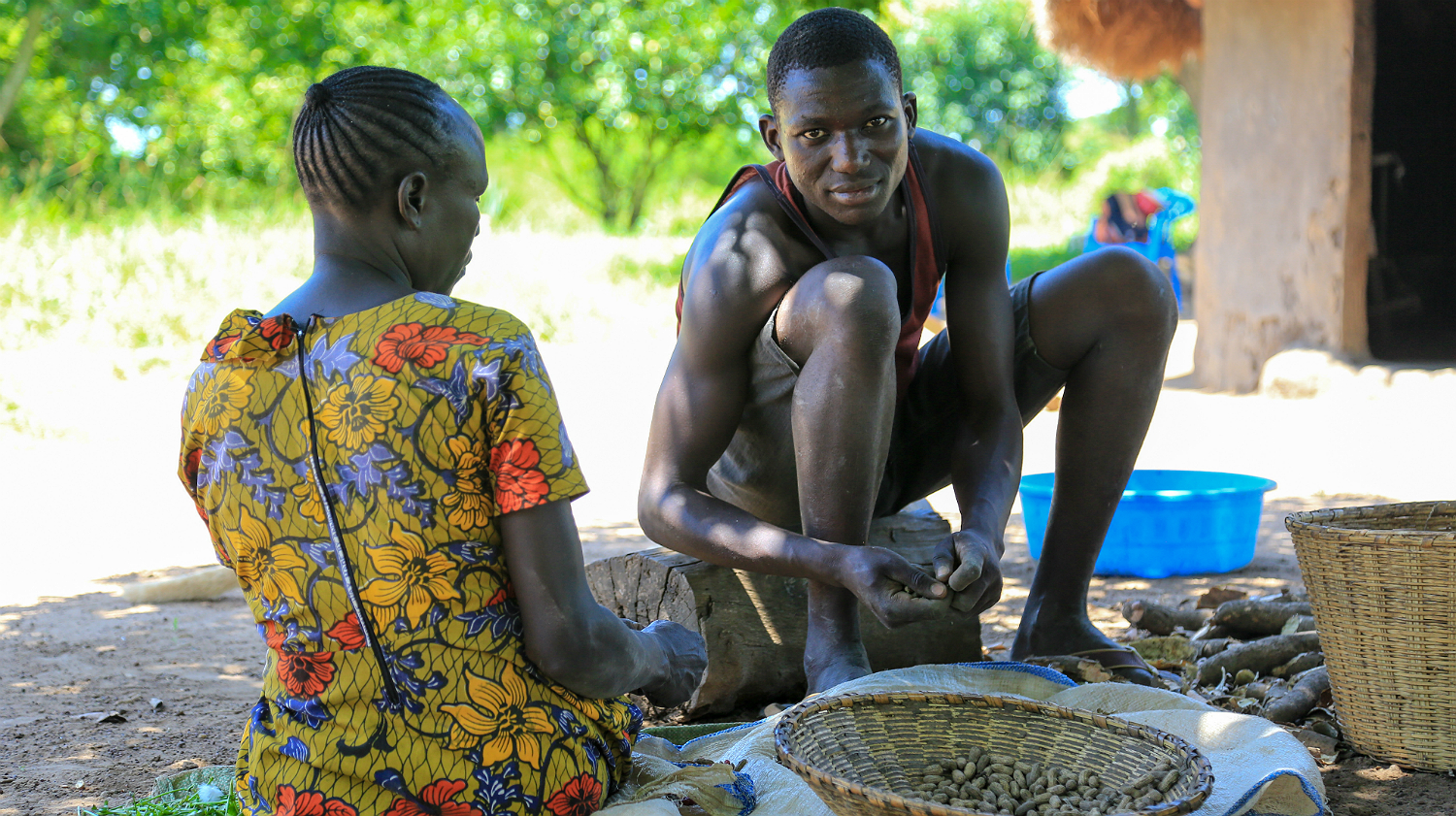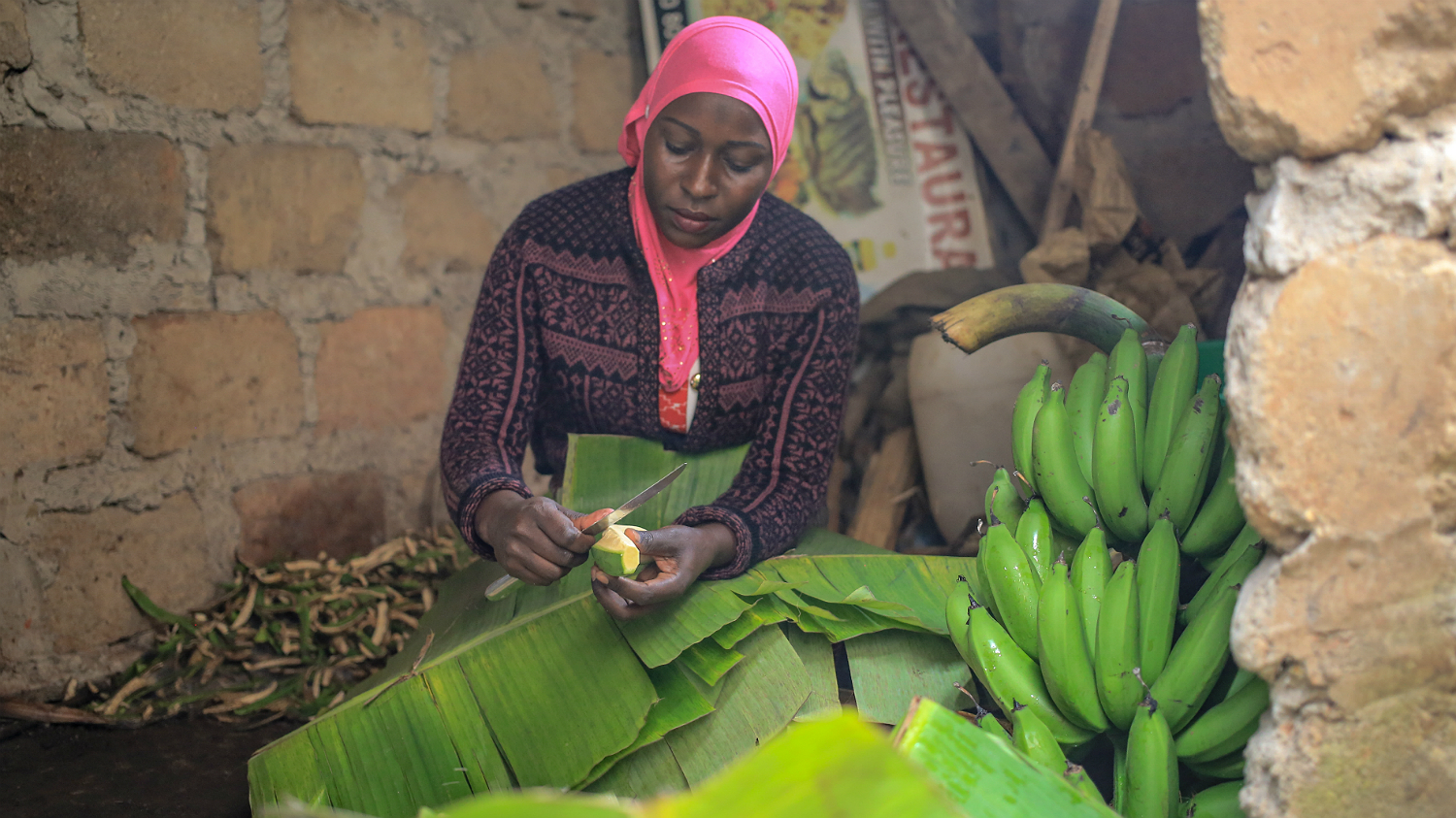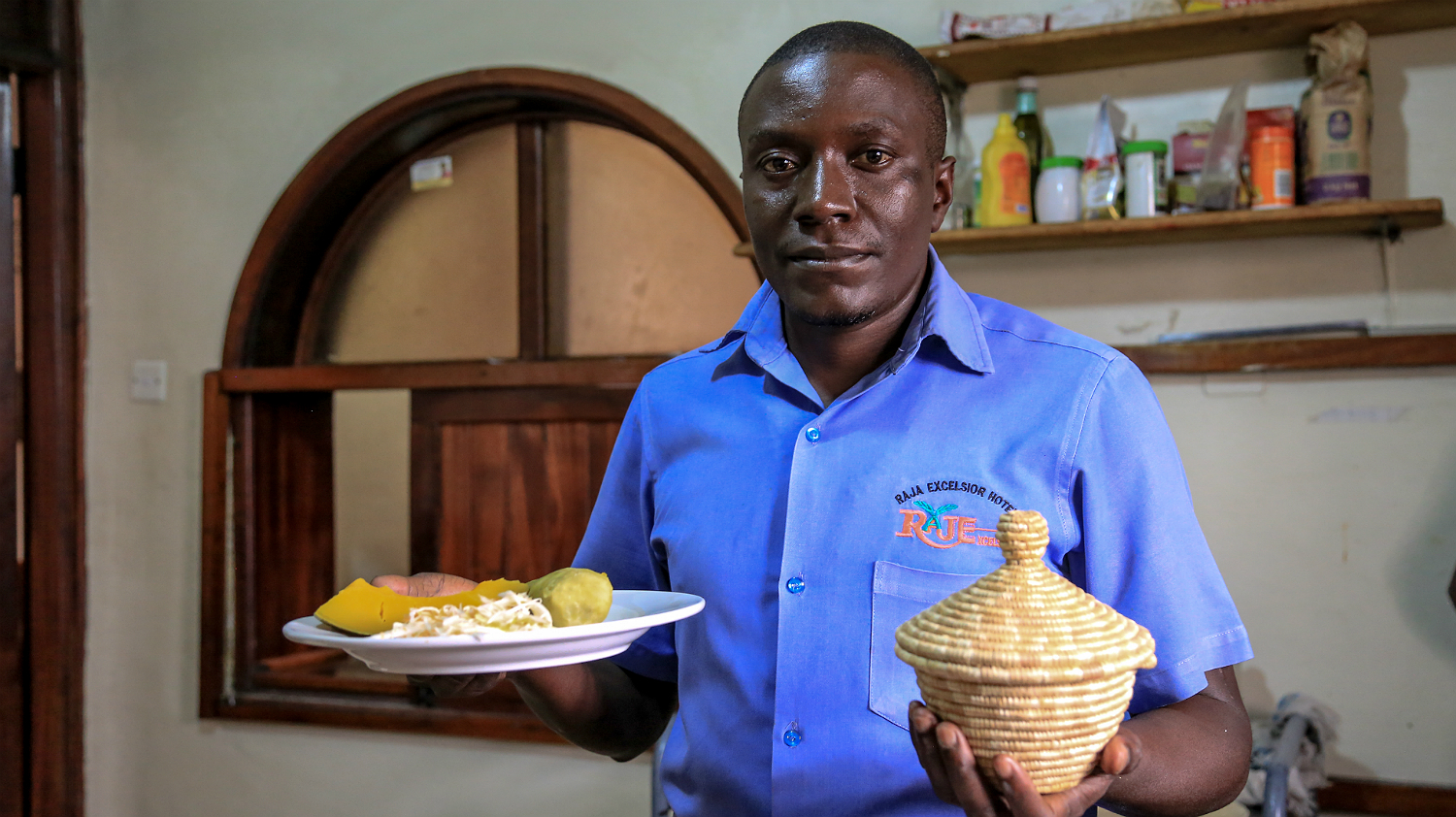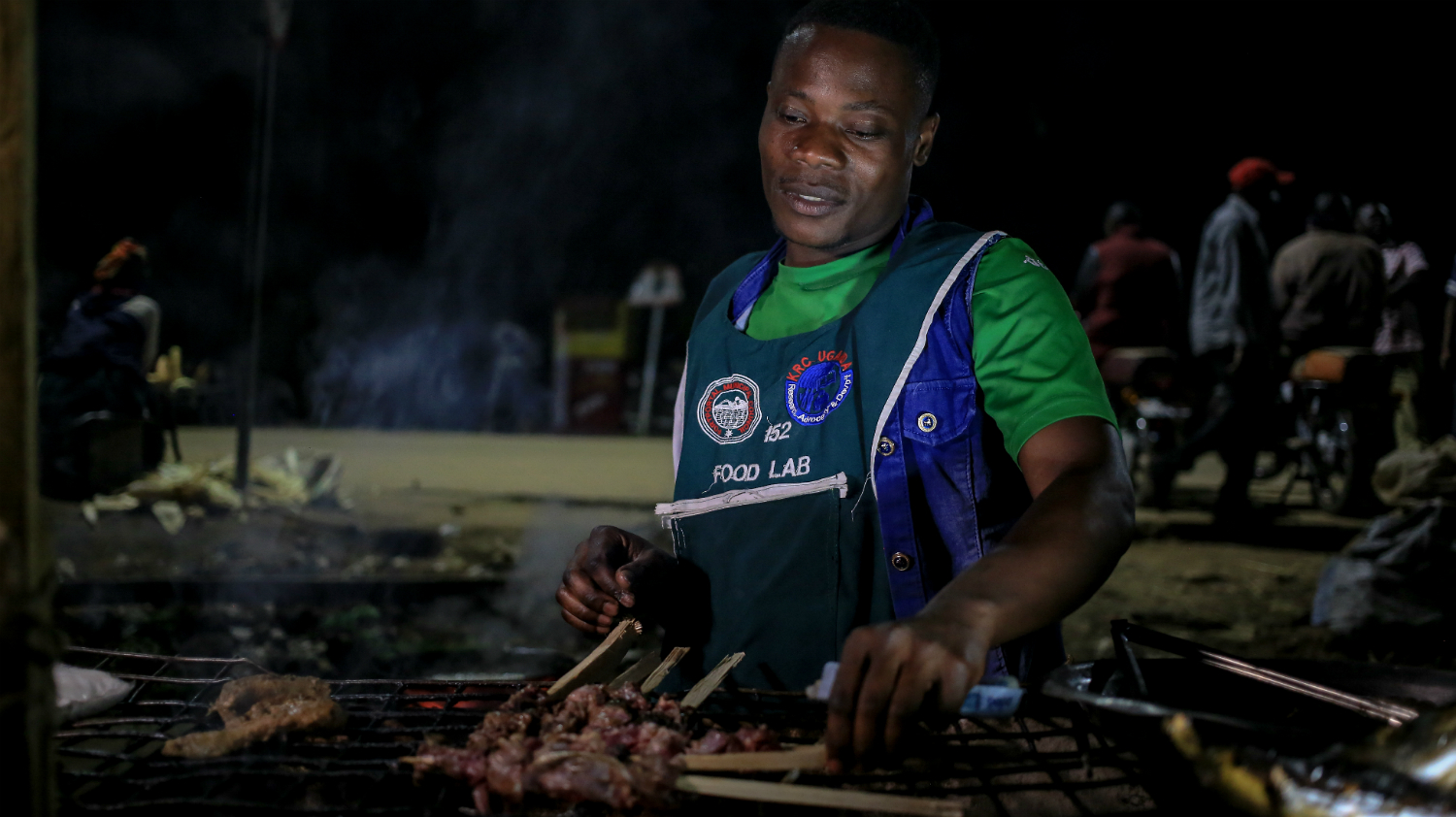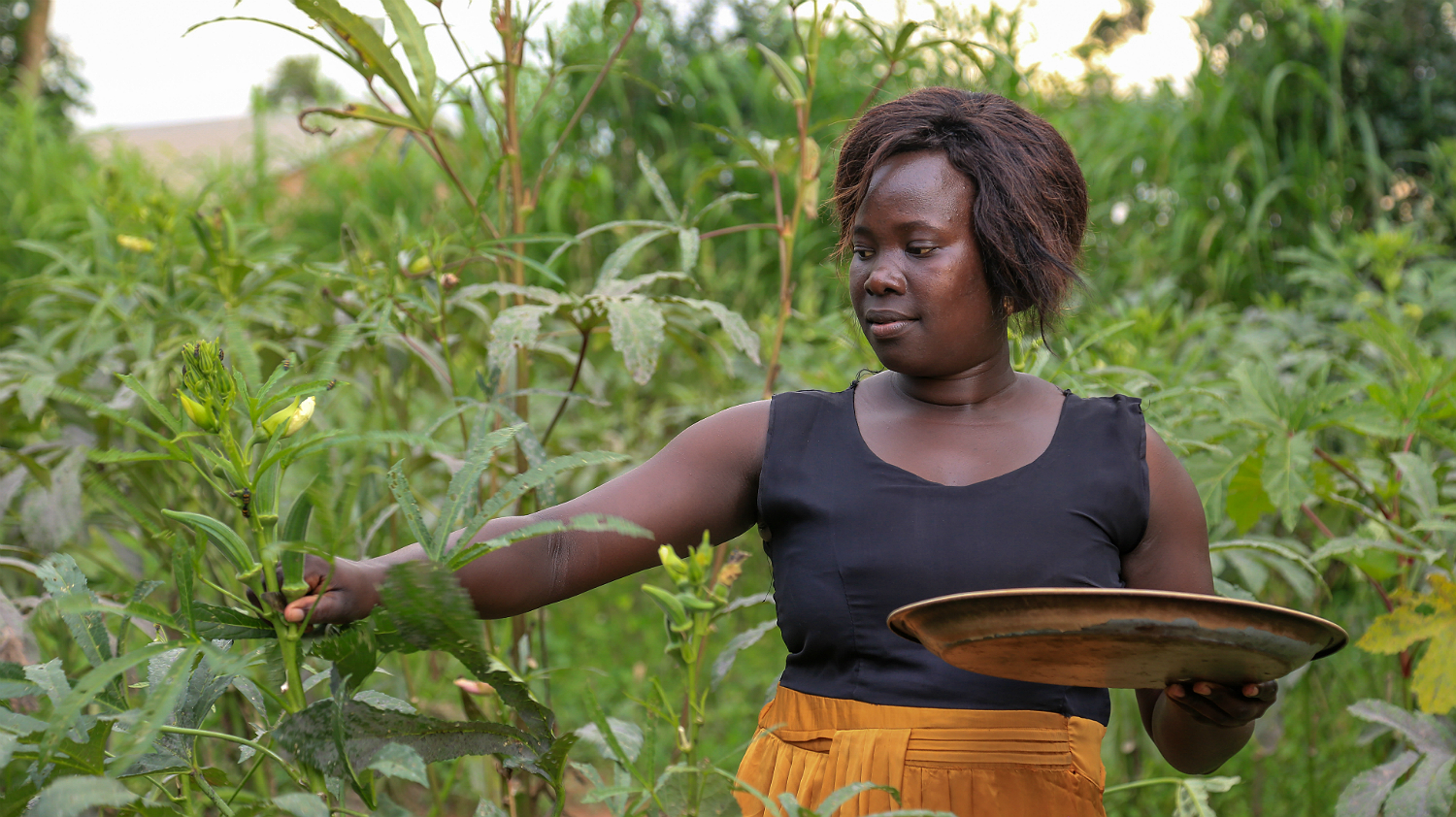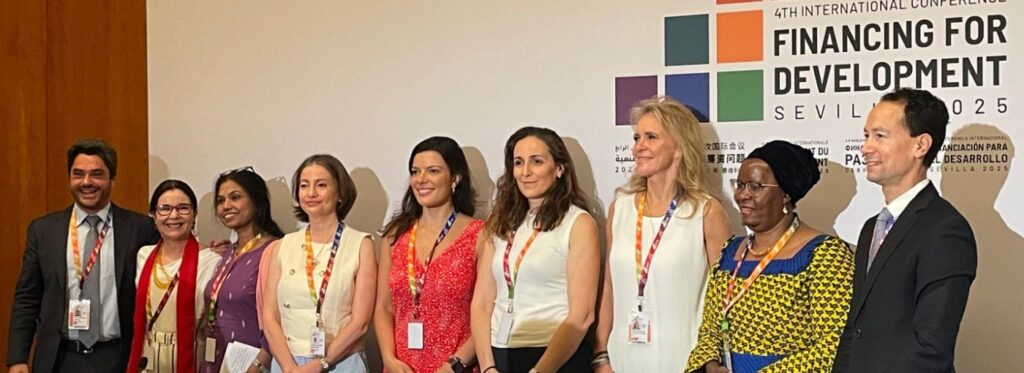Farmers, food providers and consumers from Gulu, Buikwe and Kabarole Districts give their personal views on the Ugandan diet and food supply.
Known as the food basket of East Africa, Uganda supplies 72% of the region’s commodity exports. Yet, today four out of ten Ugandans are not getting their required dietary intake. In fact, 16% of households are chronically undernourished and only 4% are food secure. At the same time, the proportion of overweight adults continues to grow: 24% of women and 9% of men aged 15 to 49 are overweight or obese.
This lack of diversity in Ugandan diets stems from challenges in food production and accessibility as well as a lack of awareness of the nutritional value of food, especially indigenous and traditional foods
A photographic exhibition curated by the Sustainable Diets for All programme explored the Ugandan diet through testimonies from farmers, food providers and consumers.
The testimonies featured in the exhibition tell of the challenges farmers face in protecting their crops from pests, diseases and increasingly unpredictable climate hazards such as droughts and heavy rains. They show fluctuations in the price of agricultural produce and barriers in accessing land, capital and quality farm inputs such as seeds and pesticides, fertilisers, training and technical support. They also speak of the role the government can play in helping them overcome these challenges. Restaurant and hotel owners talk of their drive – and the barriers they too face – to offer a more diverse and healthy food choice on their menus, while consumers tell of the changes they are making to their diets in striving to lead healthier lives.
These food voices identify education, and training about the importance and nutritional value of indigenous and traditional foods, as essential to positively transforming the food system in Uganda.
Josephine Atek is a 65-year-old vendor and farmer from the Bardege Division in Gulu District, who produces her own food and sometimes buys from the market.
She would like to widen the type of crops that she sells, but is limited by lack of funding. “I cannot afford to have a variety of what I am supposed to sell and grow,” she says. “If I can get more capital, I would like to add dodo (amaranth greens) and okra to what I am selling. I would then go back to the village and utilise the land there to grow more because here in town there is limited space.”
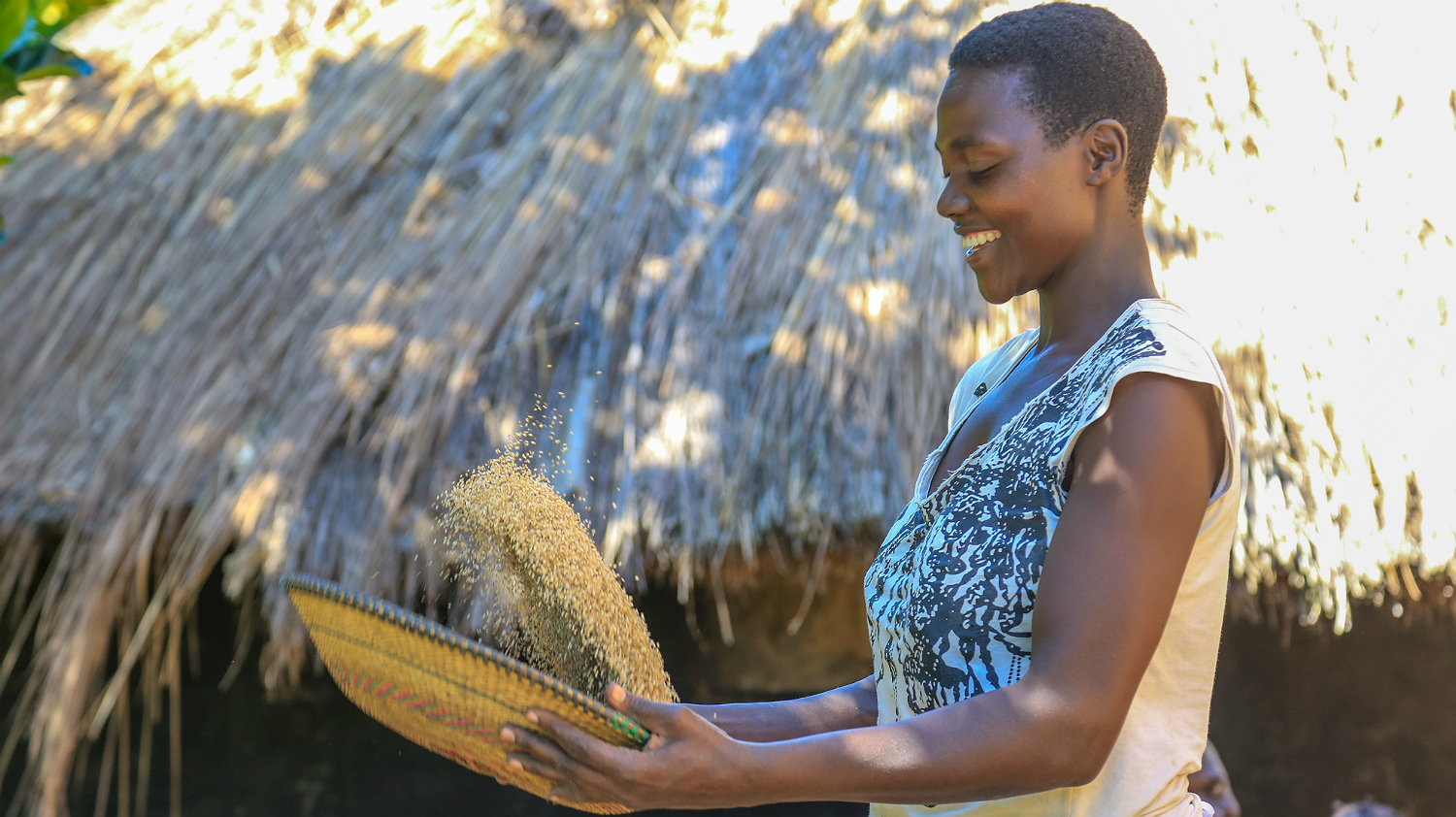
Evelyne Flora Latabu is from Bardege Division, Gulu District. The 32-year-old’s many roles include teacher, area councillor and farmer. She grows her own food, including maize, potatoes, millet and eggplants, and also rears chickens and ducks – but would like to do even more: “Diversifying my crops, by growing simsim (sesame) for instance, is something I would like to do but limited land and natural resources make it a challenge.”
Her position in society allows her to empower more people to grow food. She says: “As a food and diet champion, I would like to transfer my knowledge to as many people in my community as possible.”
chickens and ducks – but would like to do even more: “Diversifying my crops, by growing simsim (sesame) for instance, is something I would like to do but limited land and natural resources make it a challenge.”
Her position in society allows her to empower more people to grow food. She says: “As a food and diet champion, I would like to transfer my knowledge to as many people in my community as possible.”
Hellen Sally Akumu, 28, is a farmer and diet champion, and grows eggplant and other vegetables. She comes from Bardege Division, Gulu District and says: “The main issue influencing my farming is limited land for expansion. I would love to plant beans and cowpeas because they grow faster. They are among the cereals people love to eat and it doesn’t require much space to grow them.”
For farmers in general, she believes that access to good quality seeds, and knowledge and training on how to improve farming, could make a change for the better.
Emericana Lamwaka is a 47-year-old farmer from Bardege Division, Gulu District, who grows cowpeas, beans, bananas, maize and cassava. Controlling pests and diseases is her biggest challenge, along with access to resources.
She says: “I would also like to farm eggplants, cabbages and groundnuts, but I need access to certain resources to make this change. Fertilisers, pesticides to control the pests and diseases, as well as ensuring proper selection of quality seeds would help this.”
Sulait Ssemwezi, aged 45, is a farmer from Ssi Sub County, Buikwe District. He grows a wide range of crops but would like to do more.
“I make decisions about what I will plant based on environmental conservation, income generation, good diet and nutrition. Drought, weeds and limited access to quality seeds also influences what I grow. I’m currently farming coffee, vegetables, bananas, pawpaws, cassava, coco yams, climbing yams, passion fruits, jack fruits, potatoes, sugarcane and avocados. I would like to add cocoa and black pepper.”
He believes that public policy can help farmers: “The prices of agricultural products should be increased so that farmers can get money to buy more land and agricultural inputs. The government should also address the issue of land grabbing to ensure the safety of farmers.”
Wilber Byamukama, 28, is an entrepreneur and farmer from Kasenda Sub County, Kabarole District. The food he eats comes from what he grows.
“Adding more vegetables to my diet is a priority. I would like for my fellow farmers and I to receive training so we can adapt what we grow and how we grow it to the changing climate.”
Simon Akena is an 18-year-old farmer from Bungatira Sub County, Gulu District, who grows food both to eat at home and to sell. His main crops are ground nuts, cassava and sweet potatoes.
He says: “My main challenges as a farmer are heavy rainfall, pests and diseases, and prolonged drought. As I don’t want to use any chemical pesticides, I’m planning to make my own pesticides from local plants. This means that I will also save the money I would have used to purchase them. I would like to gain more knowledge about farming and entrepreneurship. For now, I’m saving money from my farm produce to buy land where I can plant millet and sorghum.”
Hawa Nakabuye, 25, is a hotelier and restaurant operator from Ngogwe Sub County, Buikwe District who buys food direct from farmers and believes in the importance of local foods.
“The food I buy often includes yams, pumpkins, meat, fish, nuts, cabbages, nakati, eggplant, matooke, rice, climbing yams, cassava, sweet potatoes, Irish potatoes, posho and beans,” she says.
“Customer care is a strong pillar of my business and I see a need to improve both access to food and proper hygiene in order to make food safe from contamination. I believe this will also increase the amount of local foods that are consumed. If I had my own land, I would cultivate my own food for my restaurant.”
Vincent Semakula, 30, works as a chef in Fort Portal Municipality, Kabarole District and buys his supplies from nearby markets. He wants to encourage people to eat local foods.
“Making people in the community aware of the benefits of local, indigenous foods is the first step in getting them to love them. I would like to see a change in people’s mindsets – where they come to my restaurant and not only order a variety of vegetables, but appreciate the local foods they see on my menu.”
Also from Fort Portal Municipality is 24-year-old Dan Byabasaija, a street food vendor. He buys what he sells from butchers, farmers and markets such as Kabundaire and Karago.
“Poor climate – especially during the rainy season – high rental charges and too much exposure to fire are some of the challenges I face,” he says. “In the future, I would like to diversify what I sell to my customers by adding fish to my menu.”
Twenty-nine-year-old Reverend Acan Welcy, from Bardege Division, Gulu District, is a religious leader. She gets most of her food from the market or her own garden.
She says: “Greens are really important, and something I’m trying to add to my diet, because they help the body fight nutritional diseases. I would like to see people growing food for their own consumption, rather than selling it, as they also need a good diet.”
Oryema Denish Ayella, 37, is a community development officer in Bardege Division, Gulu District. He gets his food from the market and is trying to improve his diet: “I am adding more vegetables as my side dishes. This will help me to fight diet-related diseases.”
He also has ideas on how to improve food production: “In addition to increased production and the use of modern technology, I would suggest that measures like mulching and fertiliser application be put in place to overcome challenges like the land losing fertility.”
The photo exhibition was curated by the Sustainable Diets for All (SD4All) programme in Uganda. SD4All builds more sustainable food systems in Bolivia, Indonesia, Kenya, Uganda and Zambia by connecting people to policymakers and market actors.
The programme is coordinated by Hivos and IIED, and is funded by the Dutch government. In Uganda the programme is being implemented with Slow Food Uganda, Food Rights Alliance, Volunteer Efforts for Development Concerns and the Kabarole Resource and Research Centre.
Photography by: Joseph Muhumuza
This blog was first published by IIED

